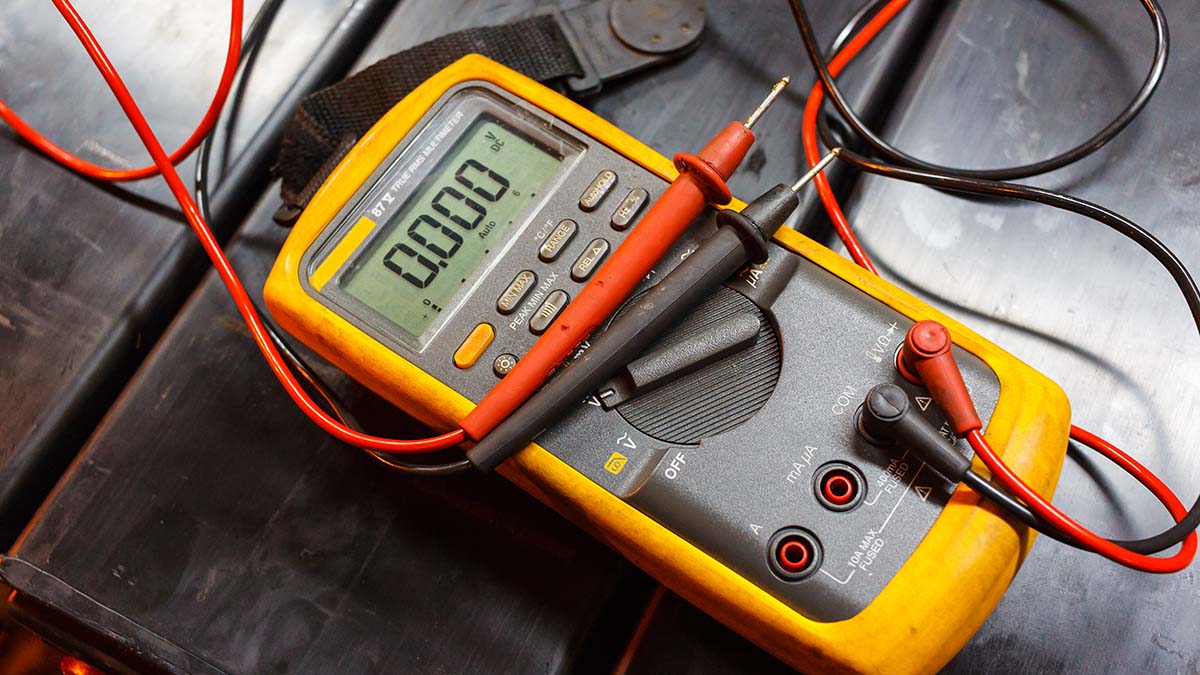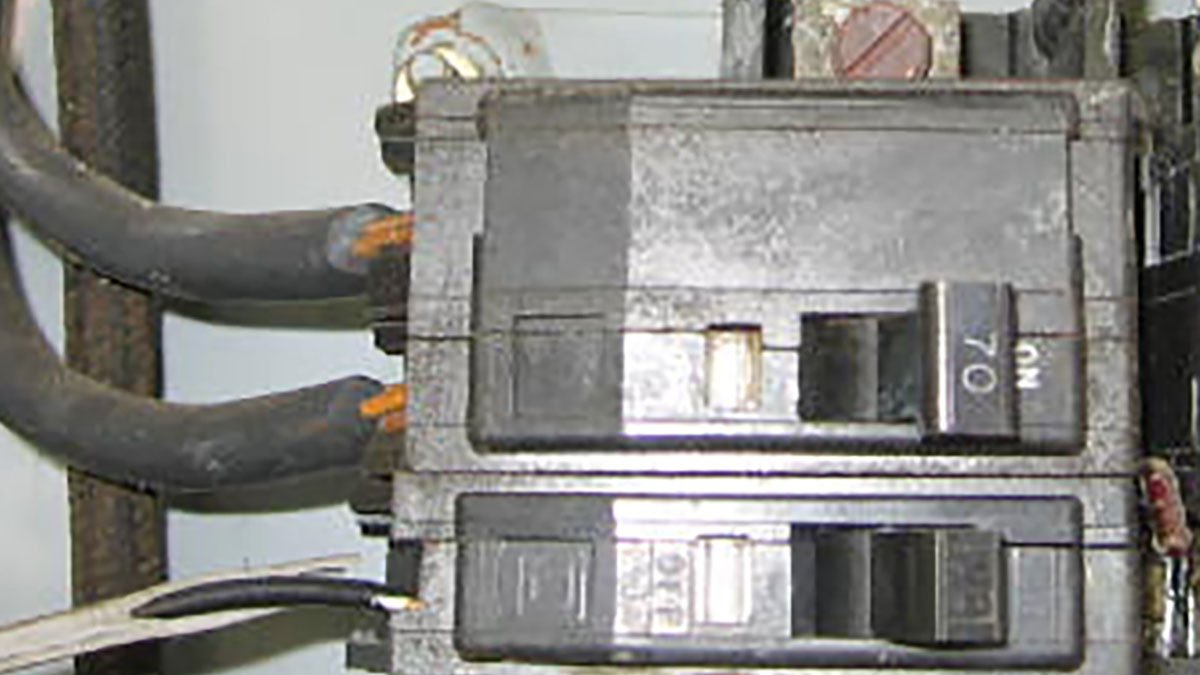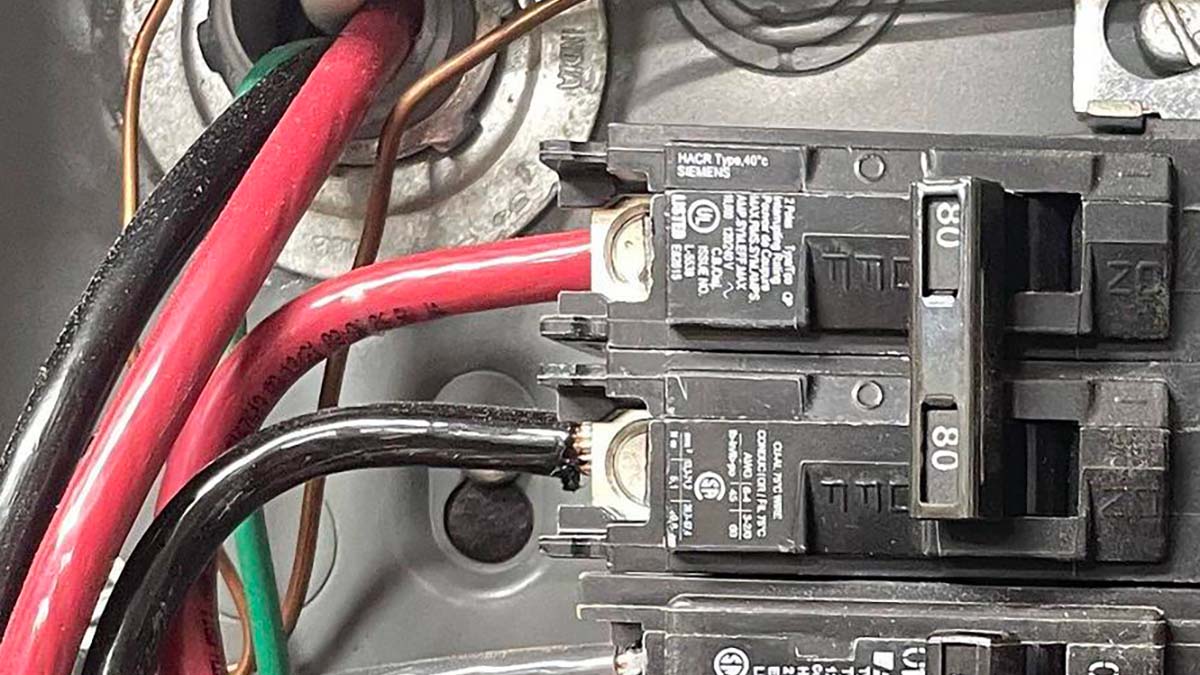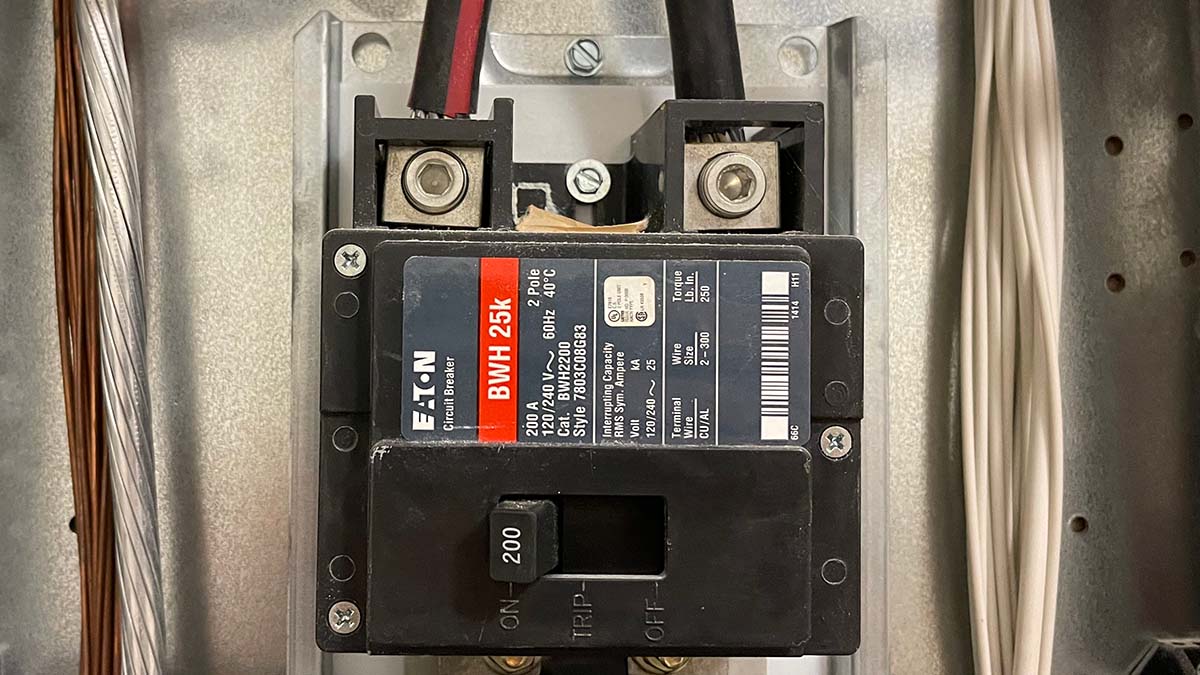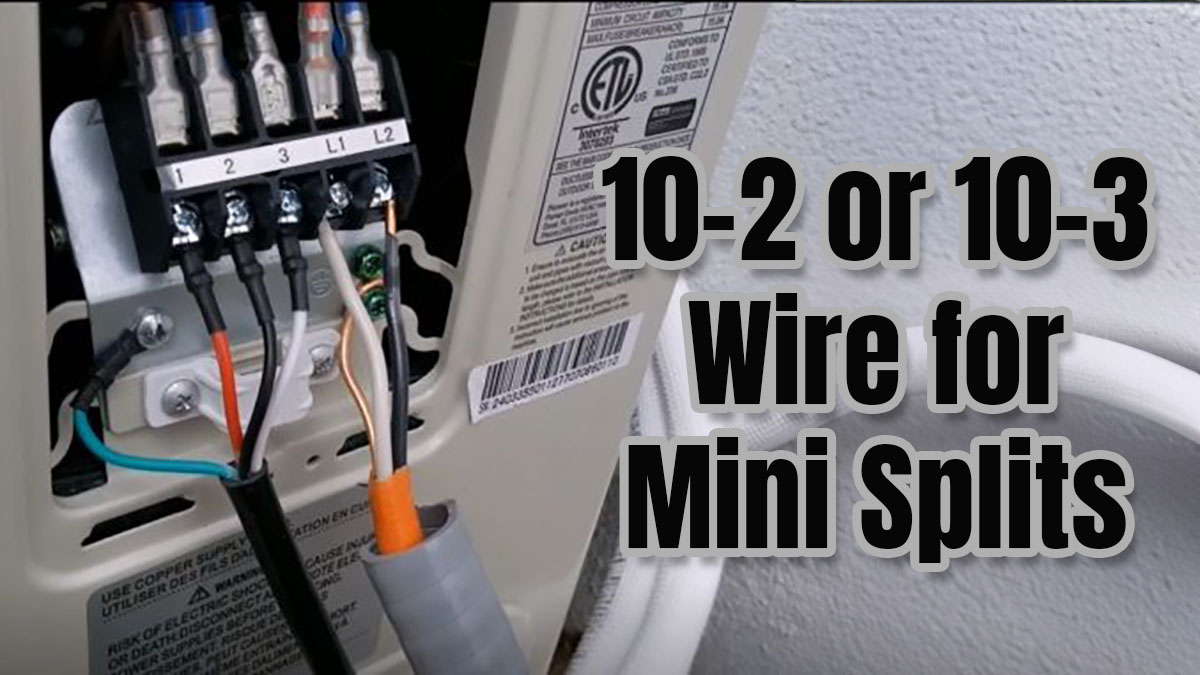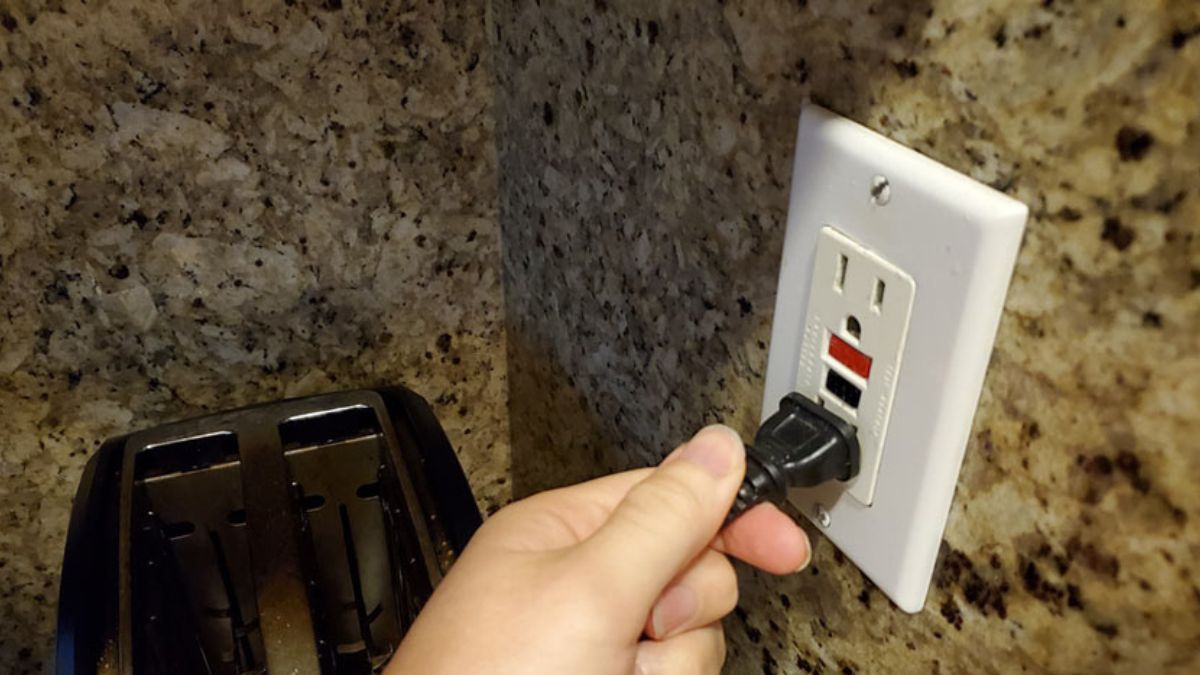The best 70 amp wire size is 4 AWG copper wire, supporting up to 85 amps, or 2 AWG aluminum wire, handling up to 90 amps, ensuring safe and efficient power delivery for runs up to 100 feet. 1
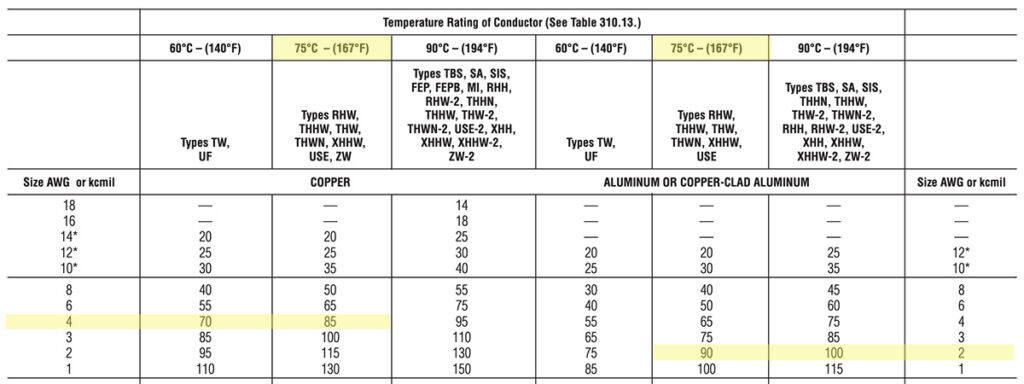
Understanding the significance of selecting the right wire size for your 70 amp circuit breaker is crucial. Whether you’re powering an oversized garage door opener or a shop or garage sub panel for heavy-duty tools, the wire size you choose carries the weight of your project’s success.
Always consult NEC Table 310-16 guidelines and use a voltage drop calculator to ensure safety and efficiency.
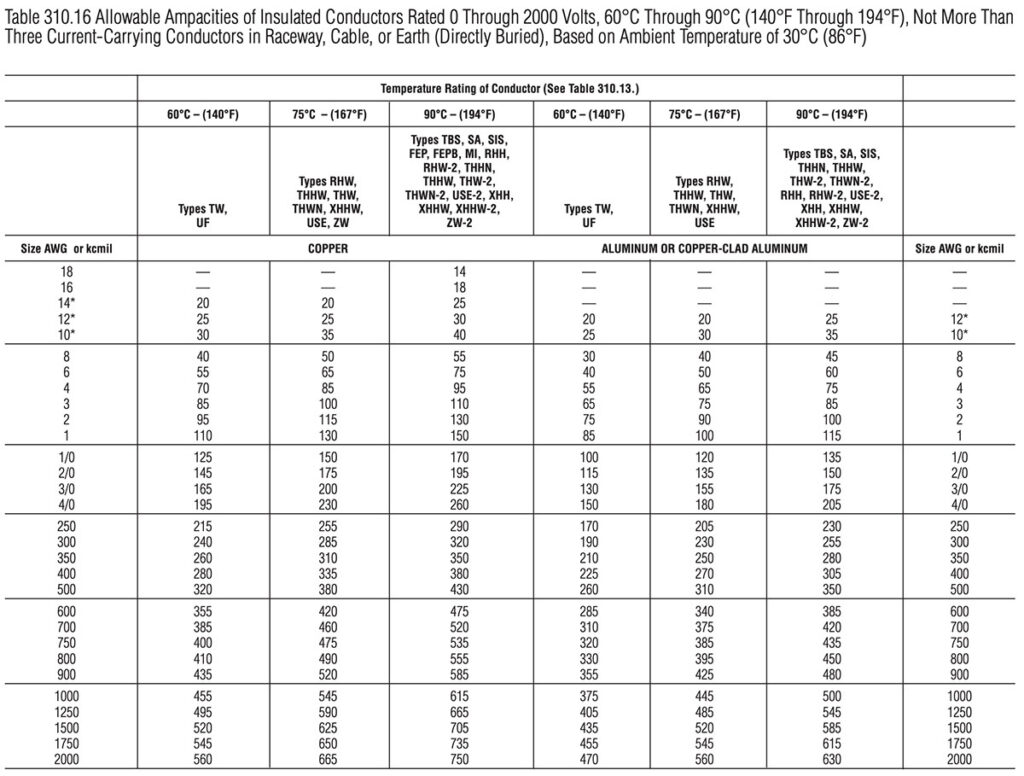
Wire Sizes for 70 Amp Breakers
When it comes to a 70 amp circuit breaker, precision is key. The best single-phase 120/240V circuit options are 4 AWG copper or 2 AWG aluminum wires.
The 4 AWG copper wire, with its 85 amps ampacity at 75°C (167°F), is a reliable cable for your current, ensuring minimal voltage drop and maximum efficiency. Similarly, the 2 AWG aluminum wire, boasts a 90 amps ampacity at the same temperature.
But remember, these wire sizes are recommended for a maximum run of 100 feet. It’s not just a distance; it’s a threshold where efficiency meets safety, ensuring that every inch of your wire contributes to the seamless operation of your electrical system.
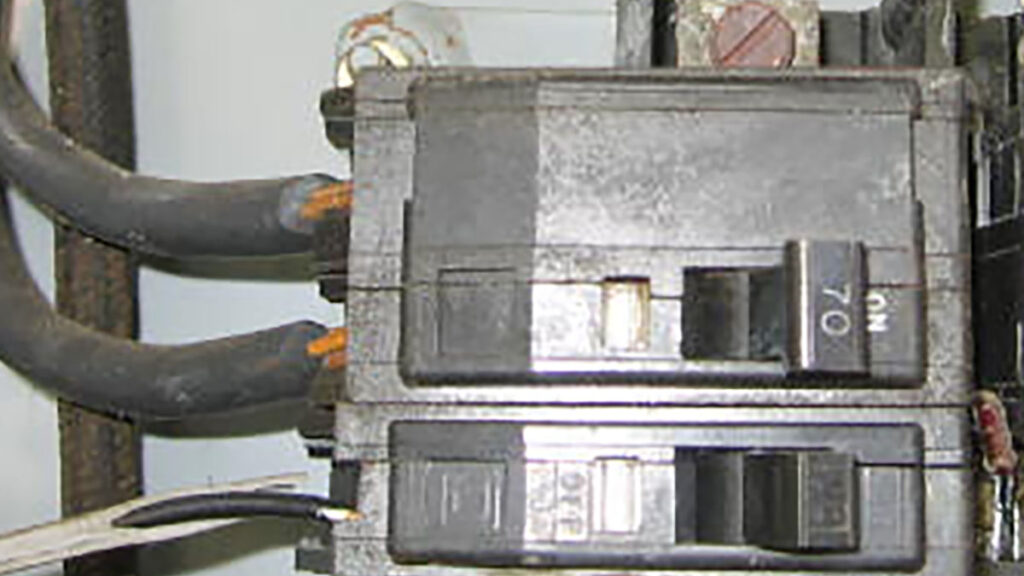
Extended Distances and Wire Size Adjustments
What happens when your project stretches beyond the standard 100 feet? This is where your understanding of wire size and voltage drop becomes crucial. For distances up to 200 feet, you need to increase the wire gauge to account for voltage drops.
A 3 AWG copper or a 1/0 AWG aluminum wire can accommodate longer distances, traversing approximately 240 feet, in most conditions.
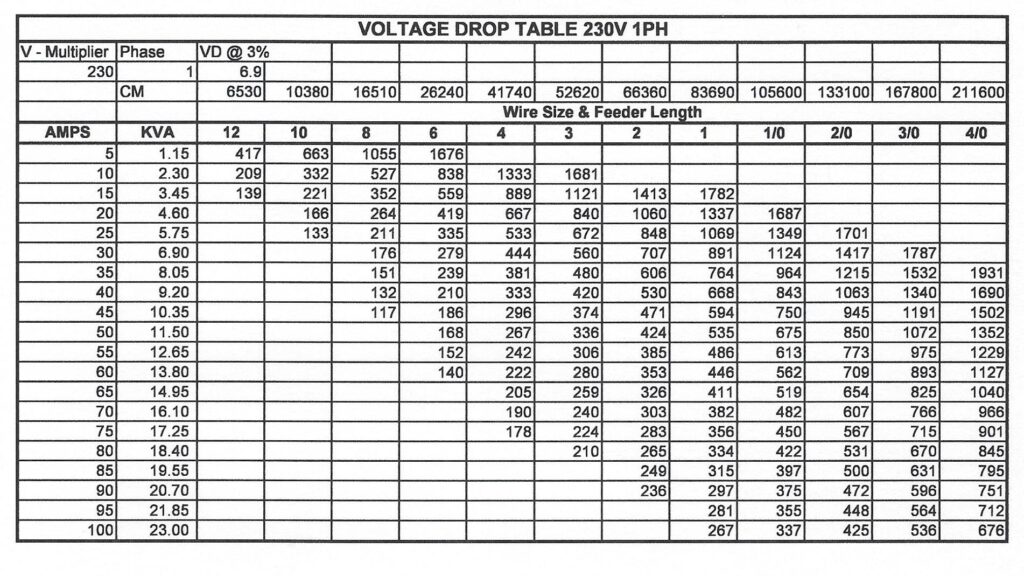
Copper vs Aluminum Wiring for 70A Circuits
When setting up a 70A circuit, one of the pivotal decisions you’ll face is choosing between copper and aluminum wiring. Both materials have merits and limitations, and understanding these can guide you to the most suitable choice for your needs.
Copper Wiring: The Reliable Conductor
Pros:
- Conductivity: Copper is highly conductive, efficiently transferring electricity with minimal resistance. This leads to less energy loss and heat generation.
- Durability: Copper wires are less prone to breakage due to their flexibility and tensile strength. They can withstand thermal expansion and contraction well, making them durable.
- Compatibility: Copper wiring is compatible with most types of terminals and connectors, reducing the risk of corrosion or loosening over time.
Cons:
- Cost: Copper is generally more expensive than aluminum, which can increase the overall cost of your wiring project.
- Weight: Copper is heavier, which might be considered when weight plays a crucial role, such as in certain structures or installations.
Aluminum Wiring: The Lightweight Alternative
Pros:
- Cost-Effectiveness: Aluminum is more abundant and less costly than copper. Aluminum can be cost-effective if you’re working on a large project or have a tight budget.
- Lightweight: Aluminum wiring is lighter, making it easier to handle and install, especially in applications where weight is a concern.
Cons:
- Conductivity: While aluminum conducts electricity, it does so less efficiently than copper. It has higher resistance, which can lead to more significant voltage drop and heat generation over long distances.
- Expansion and Oxidation: Aluminum expands more than copper when heated, which can lead to loosening connections over time. It also oxidizes when exposed to air, forming a layer of aluminum oxide, which is less conductive and can lead to overheating if not properly managed.
- Compatibility: Special care is needed when connecting aluminum wiring to devices and fixtures designed for copper, as improper connections can lead to corrosion and increased resistance.
Making the Right Choice for Your 70A Circuit
When deciding between copper and aluminum wiring for your 70A circuit, consider the following factors:
- Length of the Circuit: For longer runs, copper’s lower resistance can reduce voltage drop and heat buildup.
- Budget Constraints: If cost is a significant factor, aluminum wiring can offer a more budget-friendly solution.
- Installation Environment: Consider the environment where the wiring will be installed. If the area is prone to temperature fluctuations, copper’s stability and durability might be more beneficial.
- Future Maintenance: Copper wiring generally requires less maintenance due to its durability and resistance to oxidation, which can be a deciding factor for some installations.
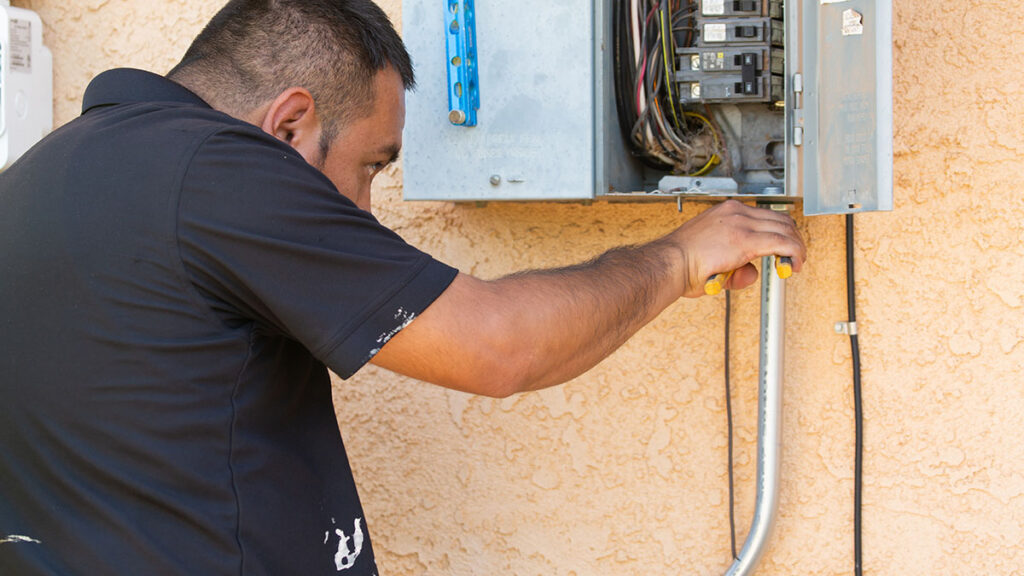
Common Misconceptions About 70A and 6-Gauge AWG Copper Wire
A common home improvement myth circulating in forums and stack exchanges. Some might suggest that a 6-gauge copper wire suits a 70 amp load. This is a misconception that can lead to overheating and circuit damage. A 6-gauge wire can meet 70 amps under strict ambient temperature of 90o C (194oF).
However, a 6 AWG copper wire typically handles around 65 amps at 75o C (167oF), falling short of the 70 amps.
Related reading: Residential Electrical Load Calculation
Common Applications of 70 Amp Breakers
The 70 amp breaker is often the silent guardian of large appliances. Imagine your electric range, oven, or central air conditioning unit. These aren’t just appliances; they’re the pillars of your home comfort, and the 70 amp breaker ensures they receive the current they need, unwavering and strong.
- Large Appliances in Residential Applications: In homes, a 70 amp breaker might be the backbone for larger appliances, ensuring that your electric range or central air conditioning unit receives stable power.
- Commercial Equipment: In a commercial setting, the 70 amp breaker proves its worth by accommodating the power needs of industrial ovens or machinery.
- Workshops and Garages: For the DIY enthusiast or the professional, the 70 amp breaker is indispensable, ensuring that tools, compressors, and welders operate without a hitch.
- Outdoor Installations: The 70 amp breaker ensures a reliable power supply from lighting to irrigation systems, even in the most extensive outdoor spaces.
- Electric Vehicle Charging: As electric vehicles become more prevalent, the 70 amp breaker provides the necessary power for faster charging rates.
- Subpanels: When you need to distribute power to various areas, the 70 amp breaker is the primary connection point, ensuring that every section of your property is well-powered.
- HVAC units: The breaker powers larger HVAC systems in some residential or commercial settings.
- Hot tubs and swimming pools: the 70 amp breaker powers subpanels for pool heating equipment, pumps, and lighting.
Selecting the Right Electrical Cables for 70 Amp Breakers
Selecting the perfect electrical cable for your 70 amp breaker is a critical decision, deeply rooted in understanding the specific demands of your environment and the unique requirements of your setup. It’s not just about connecting points A and B; it’s about ensuring that every inch of your cable is primed for safety, efficiency, and longevity.
- NM-B (Non-Metallic Sheathed Cable): When your project is indoors, particularly within the residential sphere, NM-B cables are your go-to. They are designed for dry interior applications, efficiently powering your lighting, outlets, and even that heavy-duty garage door opener while nestled safely within your walls.
- SE (Service Entrance) Cable: If your project takes you outdoors, SE cables are your stalwart companions. These cables are built to withstand the elements, making them perfect for powering detached garages, outdoor lighting systems, or any structure that demands robust, reliable power from an overhead or underground service entrance.
- UF-B (Underground Feeder): UF-B cables are unmatched for projects that delve beneath the surface. Engineered for direct burial, these cables are a fortress against moisture, ensuring a steadfast power supply to your outdoor lighting, irrigation systems, or any application that requires resilience against the rigors of the underground.
- THHN/THWN (or THWN-2) Wires in Conduit: Versatility is the game’s name with THHN/THWN wires. Whether you’re threading them through the conduit in a bustling workshop, a garage, or an expansive commercial space, these wires stand up to the challenge. Their resistance to flames and moisture means they’re not just passing through your conduit but safeguarding your power supply.
- Mobile Home Feeder (MHF) Cable: Tailored for the unique needs of mobile homes, MHF cables bring flexibility and robust ampacity. Designed to weather the storms and shine under the sun, these cables ensure that mobile homes are never left in the dark with all their specific power needs.
Regulatory Compliance and Safety Standards
Navigating the electrical landscape of your home or project isn’t just about making connections; it’s about adhering to a code—a code that ensures safety, efficiency, and peace of mind.
Your local regulations and electrical codes aren’t just guidelines; they are the blueprint for electrical integrity. When you choose the wire size for your 70 amp breaker, you’re not just deciding based on capacity but aligning with standards with safety at their core.
Related reading: 80 Amp Wire Size: Breaker & Wiring Gauge Guide
Frequently Asked Questions
What is the appropriate gauge wire for a 70 amp circuit?
The appropriate wire gauge size for a 70 amp circuit is usually 4 AWG. However, the exact wire size may vary depending on the length of the circuit, the type of wire, and other factors.
What size copper conductor is recommended for 70 amps at 240 volts?
The recommended copper conductor size for 70 amps at 240 volts is usually 4 AWG. However, the exact size may vary depending on the length of the circuit, the type of wire, and other factors.
How do I calculate the correct wire size for a 70 amp electrical service?
To calculate the correct wire size for a 70 amp electrical service, you need to consider the length of the circuit, the type of wire, the voltage, and the load. You can use a wire size calculator or consult the National Electric Code (NEC) for guidance.
Can I use a 6-gauge wire for a 70 amp breaker?
No, a 6-gauge wire is generally unsuitable for a 70 amp breaker. It typically has an ampacity of around 55-65 amps, which is insufficient for a 70 amp load and can lead to overheating and circuit damage, except in very select cases.
What are the best wire sizes for a 70 amp breaker?
The best options for a 70 amp breaker are 4 AWG copper wire, with an ampacity of 85 amps, and 2 AWG aluminum wire, with an ampacity of 90 amps. These sizes ensure efficient power delivery and minimize the risk of voltage drop.
How does distance affect the wire size I should choose for my 70 amp breaker?
For extended distances, especially runs up to 200 feet, it’s advisable to use larger wire sizes like 2 AWG copper wire or 1/0 AWG aluminum wire. Larger wire sizes reduce resistance and minimize voltage drop over longer distances.
Why is it important to comply with local regulations and electrical codes?
Complying with local regulations and electrical codes is crucial for ensuring the safety and efficiency of your electrical setup. These standards prevent hazards and ensure that your electrical system operates optimally.


